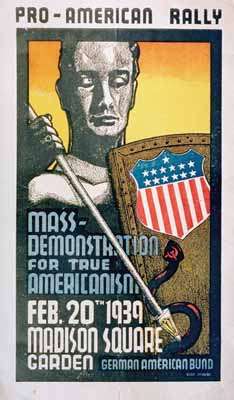Stalin Apologists Lingered on at the New York Times Long After Duranty
Earlier, Nick Gillespie took the "Stalin apologists" at the New York Times to task for what constituted a drive-by ideological shooting: wondering why "liberal" Chinese dissident Xia Yeliang, who wants more personal freedom and less government control for his country, would take a job at the "ultraconservative" Cato Institute, which favors more personal freedom and less government control for everybody. He quoted Mediaite's Andrew Kirell dismantling Times' scribbler Tamar Lewin's bizarre characterization of Cato, and borrowed the "Stalin apologist" line came from the title of a book about Walter Duranty, long the New York Times' representative in the Soviet Union, and a well-known shill for the brutal communist regime. But you don't have to go back that far to find a soft spot at the Times for brutal regimes.
On April 12, 1990, while communism was collapsing throughout much of the world and the reality of its crimes becoming undeniable to even the worst red-flag-waving dumbshit cheerleaders, the gray lady ran a weird piece about a financially struggling Los Angeles retirement home full of aging communists. Under the bizarrely off-key headline, "Political Idealists Trying to Hold Back the Night," came the tale of old lefties watching the curtains drawn on their preferred political system.
Waldemar Hille joined the Communist Party 48 years ago believing that the movement would create a more compassionate and humane America.
Today, as Communism falters in Europe, the 82-year-old Mr. Hille is fighting to preserve ''an important people's institution,'' a retirement home for political activists….
Mr. Hille, a pianist who worked with the singers Paul Robeson and Pete Seeger (and was blacklisted along with them in the McCarthy era), now considers himself a ''humanist'' more than a Communist. But he remains critical of the American system.
''Organized capitalism is an evil thing in itself,'' he said in an interview in a shady courtyard of the Spanish-style residence home. ''It's profits versus people.'' He feels the changes in Eastern Europe and the Soviet Union are good ''if they reflect the will of the people.'' He is sure his hero, Lenin, would have approved.

Can you imagine a similarly misty-eyed treatment of a bunch of gray-haired German-American Bundists? Can you imagine such a piece appearing at a hypothetical moment when millions of people were escaping the oppression of collapsing Nazi regimes?
Granted, none of the people quoted in the article explicitly endorsed Stalin, but a taste for Lenin instead is like a preference for Goering or Mussolini over Hitler. You really don't get points for that.
Yes, that article appeared in 1990, but that was at a particularly inopportune moment to sympathetically profile aging champions of fading totalitarianism, and decades after the newspaper should have learned from Duranty's crimes.
Which is why any ideological criticism from the New York Times needs to be taken with a huge grain of salt—preferably a grain that hasn't been extracted from a mine by political prisoners.


Show Comments (185)